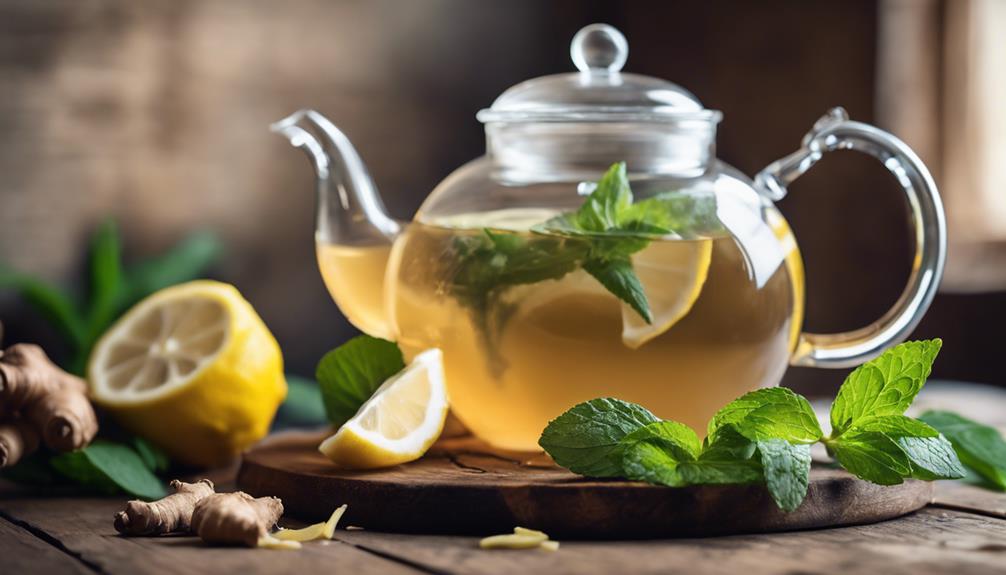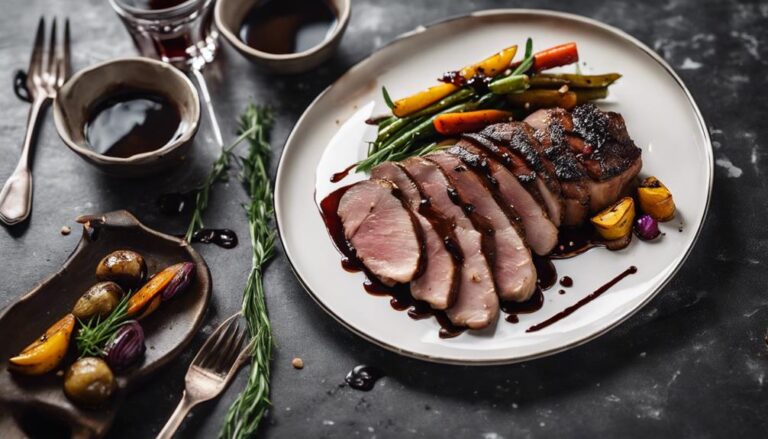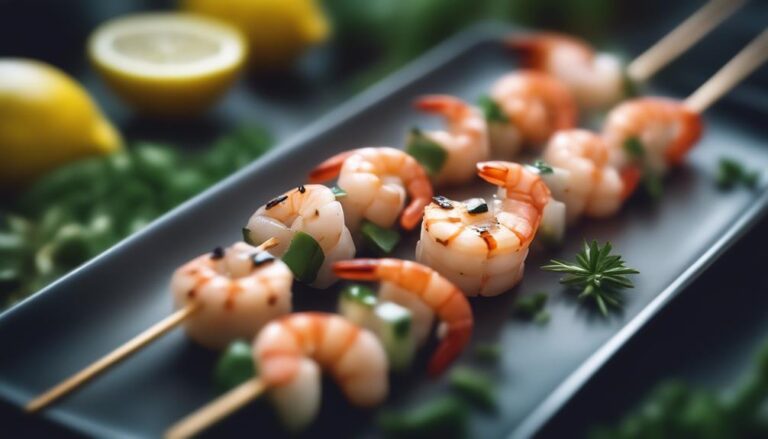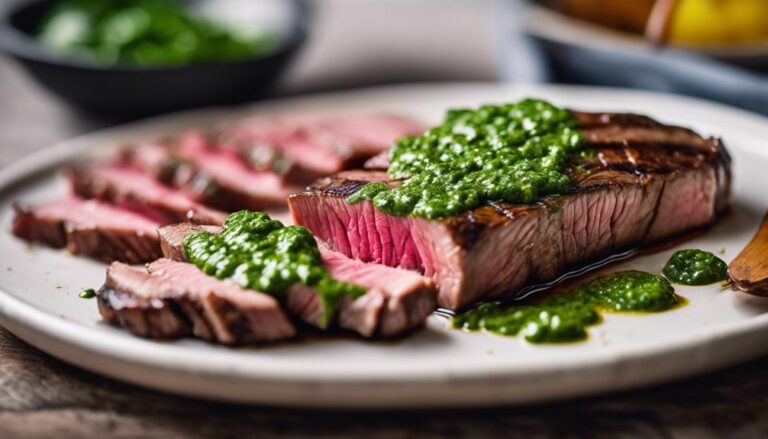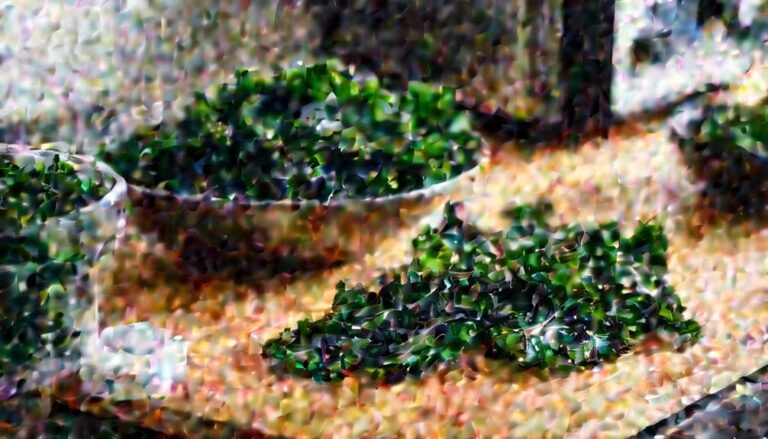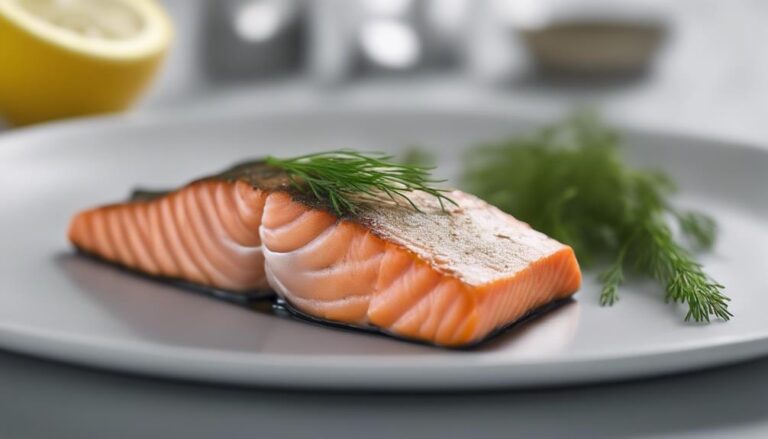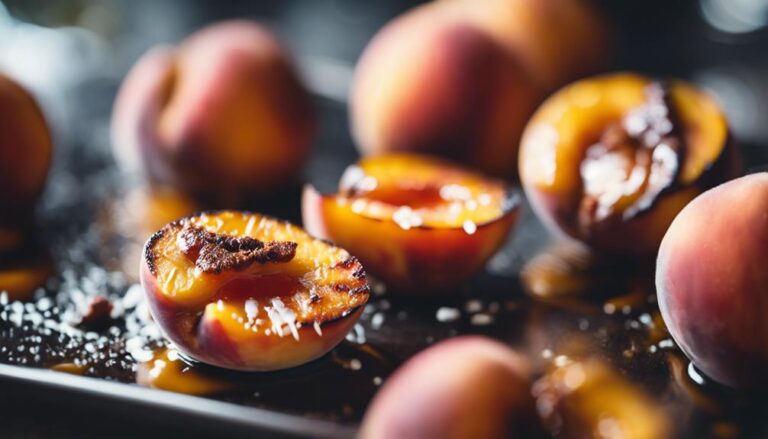Sous Vide Ginger Lemon Tea
Enter a world of zesty citrus and comforting spice with Sous Vide Ginger Lemon Tea. Infuse ginger root and lemon zest for that distinctive kick and invigorating tang. Let the flavors meld perfectly through the precise sous vide method, resulting in a rich, aromatic blend. Top-notch water purity and temperature guarantee a robust taste. Explore this invigorating tea that combines the sharpness of ginger with the brightness of lemon. Get ready to savor a satisfying and soothing drink that tantalizes your senses. Discover the art of crafting this exquisite tea and elevating your tea experience to new heights.
Tea's Origins
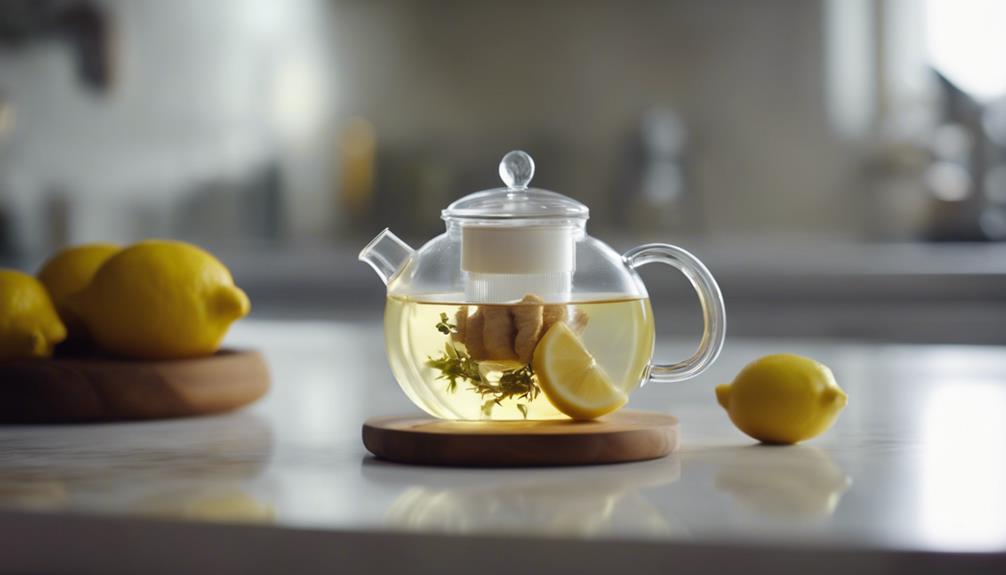
Tea has a rich history rooted in ancient traditions that have shaped its cultural significance worldwide. Throughout the ages, the evolution of brewing techniques has played a pivotal role in the way tea is prepared and enjoyed.
Understanding the origins of tea is essential to appreciating its deep-rooted connection to various cultures and its enduring popularity.
Ancient Tea Traditions
During ancient times, the origins of tea trace back to the discovery of the Camellia sinensis plant in the region of modern-day China. Tea ceremonies and rituals played a significant role in various cultures, symbolizing respect, gratitude, and tranquility. Additionally, ancient traditions surrounding tea highlighted its health benefits, such as boosting immunity and promoting relaxation. To emphasize the importance of these ancient tea traditions, consider the following table:
| Ancient Tea Traditions |
|---|
| Symbol of Respect |
| Health Benefits |
| Tranquility |
These elements formed the foundation of tea culture, shaping the way tea is enjoyed and valued across different civilizations.
Cultural Significance of Tea
In the historical evolution of cultural practices surrounding tea, the discovery of the Camellia sinensis plant in ancient China catalyzed the emergence of significant rituals and ceremonies. Tea holds immense cultural significance globally, with various traditions and ceremonies developed around its consumption. These cultural practices often reflect the values and beliefs of different societies, showcasing tea as not just a beverage but a symbol of hospitality, respect, and tradition.
Additionally, tea has been linked to numerous health benefits, including antioxidants that promote overall well-being. The rich history of tea intertwines with cultural practices, shaping the way we perceive and enjoy this beloved beverage. Understanding the origins of tea can provide insight into the diverse and intricate cultural tapestry woven around this ancient drink.
Brewing Techniques Evolution
Amidst the historical evolution of brewing techniques for the Camellia sinensis plant, intricate methods have emerged that have shaped the preparation and enjoyment of this beloved beverage.
Modern brewing approaches have greatly transformed the way tea is brewed and consumed today. The evolution of brewing techniques hasn't only enhanced efficiency but also led to flavor innovation. Innovations such as the introduction of different brewing temperatures, infusion times, and brewing vessels have all contributed to the diverse range of flavors that can now be extracted from tea leaves.
Modern brewing methods have allowed for a more personalized tea-drinking experience, catering to individual preferences for strength, aroma, and taste profiles. This ongoing evolution continues to push the boundaries of traditional tea brewing, offering tea enthusiasts a wide array of choices to suit their palates.
Key Tea Components
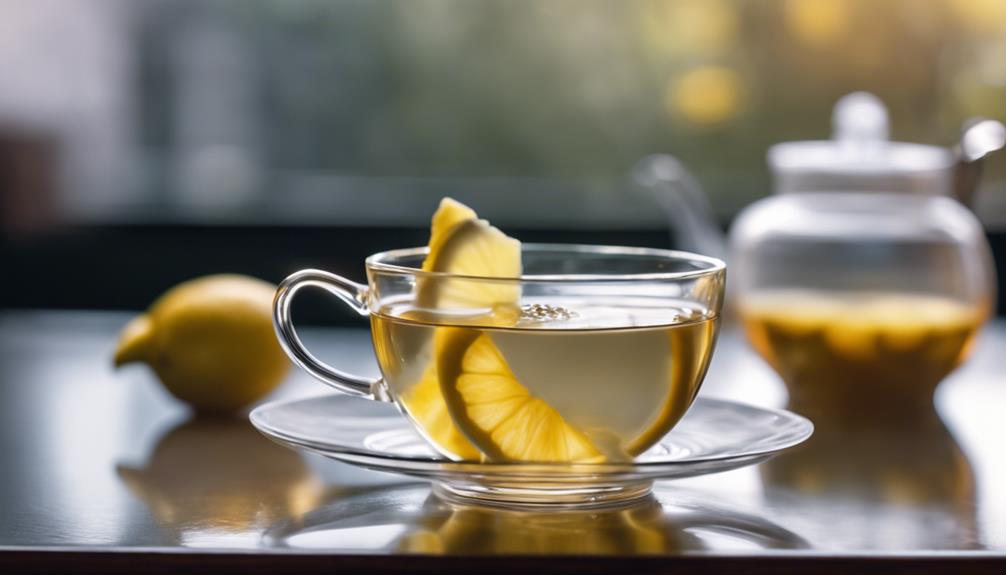
To understand the essence of a well-balanced ginger lemon tea, focus on the key components that contribute to its flavor and aroma. When brewing this tea, the delicate balance of these components is important for achieving a harmonious blend that delights the senses.
- Tea Leaves: The quality and type of tea leaves used play a significant role in determining the overall flavor profile of the ginger lemon tea.
- Ginger Root: The spicy, warm notes of ginger add a distinctive kick to the tea, enhancing its complexity.
- Lemon Zest: The citrusy aroma and tangy flavor from lemon zest brighten up the tea, providing a revitalizing twist.
- Honey: A touch of honey can sweeten the tea, complementing the sharpness of the ginger and the tartness of the lemon.
- Water: The purity and temperature of the water used in brewing the tea can influence the extraction of flavors and aromas from the other components.
Understanding and mastering the interplay of these key components is essential for crafting a ginger lemon tea that's both flavorful and aromatic.
Top Tea Infusions
Explore the aromatic and flavorful world of top tea infusions with ginger as a central player. Discover the exquisite taste profiles of a Ginger-Infused Tea Blend, the zesty kick of a Lemon Ginger Infusion, and the harmonious blend in a Ginger Citrus Fusion Recipe.
Embrace the rich and diverse spectrum of tea infusions that incorporate the invigorating essence of ginger for a truly delightful tea experience.
Ginger-Infused Tea Blend
Incorporate fresh ginger into your tea blend to infuse it with an invigorating kick and aromatic flavor profile. Ginger tea offers various health benefits, including aiding digestion and reducing inflammation.
When blending ginger-infused tea, consider the following:
- Balance: Achieve a harmonious blend by balancing the intensity of ginger with other tea leaves or herbs.
- Citrus Notes: Enhance the flavor profile with citrusy elements like lemon or orange peels.
- Herbal Additions: Experiment with herbal additions such as mint or lemongrass for a revitalizing twist.
- Spice Pairings: Complement ginger's warmth with spices like cinnamon or cloves for a cozy, winter blend.
- Sweeteners: Explore different sweeteners like honey or agave to find the perfect balance of sweetness in your ginger-infused tea.
Lemon Ginger Infusion
Enhance your tea experience with the invigorating fusion of zesty lemon and spicy ginger in this top tea infusion. When combining lemon and ginger in your herbal infusion, you not only create a delightful flavor but also reveal a range of health benefits.
Here are some key points to keep in mind:
- Lemon Ginger Benefits:
- Boosts immunity
- Aids digestion
- Reduces inflammation
- Enhances skin health
- Supports weight management
- Herbal Infusion Variations:
- Add honey for sweetness
- Include mint leaves for a rejuvenating twist
- Experiment with different tea bases like green tea or rooibos
- Infuse with chamomile for a calming effect
- Try adding a pinch of turmeric for an additional health boost
Ginger Citrus Fusion Recipe
To further elevate your tea experience, consider infusing the bright and tangy notes of ginger with the invigorating citrus flavors in this Ginger Citrus Fusion Recipe.
- Citrus benefits: Citrus fruits are rich in vitamin C, promoting a healthy immune system and skin.
- Ginger benefits: Ginger aids digestion and reduces inflammation in the body.
- Tea rituals: Engage in the calming ritual of preparing and savoring a cup of tea to promote mindfulness and relaxation.
- Tea ceremonies: Create a special moment by incorporating tea ceremonies into your daily routine, allowing for a mindful pause in your day.
- Enhanced flavor profile: The combination of ginger and citrus creates a harmonious blend of zesty and spicy notes, enhancing your tea-drinking experience.
Enhancing Tea Flavor
To enhance the flavor of your tea, consider utilizing flavor infusion techniques like steeping tea with fresh herbs or fruits, or adding spices to your brew.
Experiment with tea pairing suggestions to find complementary flavors that elevate the taste profile of your tea.
Incorporating aromatics and spices can add layers of complexity and depth to your tea experience.
Flavor Infusion Techniques
Consider incorporating various herbs and spices to elevate the flavor profile of your tea using precise infusion techniques. Flavor extraction techniques involve the release of aromatic compounds from ingredients like ginger and lemon into the tea. To enhance the taste, make sure you use fresh and high-quality ingredients.
When infusing flavors, maintain ideal temperature and time to extract the maximum essence without overpowering the tea's delicate notes. Experiment with different infusion durations to find the perfect balance between flavors. Ground spices can provide a quick burst of taste, while whole spices may offer a more subtle, gradual infusion.
Tea Pairing Suggestions
Enhance the flavor of your tea by carefully selecting complementary ingredients for ideal tea pairing.
When considering flavor combinations, opt for citrusy notes like lemon or orange with black tea for an invigorating blend. Green tea pairs well with floral hints such as jasmine or rose petals for a delicate taste profile.
For a more robust flavor, try combining chai spices like cinnamon, cardamom, and cloves with black tea.
Not only do these combinations enhance the taste of your tea, but they also offer various health benefits. For instance, ginger can aid digestion, while mint can help with soothing an upset stomach.
Experiment with different tea pairing suggestions to find the perfect match that suits your palate and wellness needs.
Aromatics and Spices
Choosing the appropriate aromatics and spices can greatly enhance the flavor profile of your tea, offering a subtle and aromatic experience that enriches your overall enjoyment of the beverage.
Aromatic herbs like fresh mint, basil, or lemongrass can add an invigorating and fragrant note to your tea. Consider infusing your tea with these herbs during the brewing process for a burst of flavor.
When it comes to spice combinations, cinnamon, cardamom, and cloves can bring warmth and depth to your tea. Experiment with different ratios to find the perfect balance of spices that complements the ginger and lemon in your tea.
Final Thoughts
In wrapping up the process of making Sous Vide Ginger Lemon Tea, make sure to reflect on the flavors and aromas that have been delicately infused into every sip. The slow infusion process of sous vide allows for a harmonious blend of ginger and lemon to permeate the tea leaves thoroughly, resulting in a rich and aromatic beverage. The benefits of this method include a more intense flavor profile and a nuanced experience for your taste buds.
| Aspects | Description |
|---|---|
| Taste | The taste of the Sous Vide Ginger Lemon Tea is a perfect balance between the zesty notes of lemon and the spiciness of ginger. The flavors are distinct yet complementary, creating a satisfying and soothing drink. |
| Aroma | The aroma of this tea is invigorating, with the citrusy scent of lemon and the warm, earthy fragrance of ginger wafting gently from the cup. Each sip offers not only a flavorful experience but also a delightful olfactory sensation. |
| Overall Experience | The overall experience of savoring Sous Vide Ginger Lemon Tea is one of indulgence and relaxation. The carefully crafted blend of ingredients and the precise sous vide cooking method ensure a tea that is both gratifying and comforting. |
Frequently Asked Questions
Can I Reuse the Ginger Lemon Tea Ingredients for Another Batch?
Yes, you can reuse ginger lemon tea ingredients for another batch. Recycling them may offer flavor variations. Experiment with tea infusion by reusing these elements, fostering culinary creativity and reducing waste. Try different combinations for unique tastes.
What's the Best Type of Ginger to Use for This Tea?
For the best ginger in tea, opt for fresh young ginger with a mild, sweet flavor profile. It balances well with lemon tea infusion, enhancing aroma. Varieties like White Ginger or Yellow Ginger offer subtle nuances that enrich the overall taste.
Does the Sous Vide Method Affect the Tea's Caffeine Content?
When using the sous vide method for tea brewing, the temperature and time can impact caffeine extraction. Sous vide allows for controlled heat, potentially leading to more efficient caffeine extraction compared to traditional methods, enhancing the overall flavor infusion.
How Long Can I Store the Prepared Ginger Lemon Tea in the Fridge?
You can store prepared tea in the fridge for up to 3-5 days for best freshness and flavor. Properly sealed in an airtight container or bottle, tea's shelf life can be extended, preserving its quality.
Can I Add Honey or Other Sweeteners to the Tea During Sous Vide Cooking?
When experimenting with flavor, adjusting sweetness levels in your tea can be done by adding honey or sugar alternatives during cooking. Consider health benefits and explore various sugar alternatives for a personalized touch.
Conclusion
To sum up, sous vide ginger lemon tea offers a unique and flavorful way to enjoy a classic beverage.
By infusing tea with ginger and lemon at precise temperatures, you can extract the maximum flavor and health benefits from the ingredients.
This method allows for a more controlled and consistent brewing process, resulting in a perfectly balanced and aromatic tea experience.
Elevate your tea game with sous vide ginger lemon tea today.
